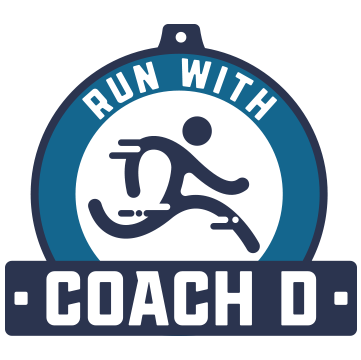Overcoming Running Injuries: The Mindset & Mental Strength Approach
Running is a joyful sport, one that connects us with nature, ourselves, and the community of runners worldwide. However, it does not come without challenges, and injuries can be one of the most discouraging obstacles a runner will face. Injuries can range from minor discomfort to severe setbacks, but with the right mindset and mental strength, you can overcome them. Whether you are training for your first 5K or 10th marathon there will be a setback of some sort, you almost have to set that tone before training starts. Before we talk about how to overcome the injury, let’s dive into a few of the most common injuries you may face as a runner.
Understanding the Most Common Running Injuries
Before we delve into the mental aspect of overcoming injuries, let's briefly understand some of the most common running injuries:
1. Runner's Knee (Patellofemoral Pain Syndrome): This injury is often characterized by a dull, aching pain around the kneecap, particularly when walking downstairs or downhill running.
2. Shin Splints (Medial Tibial Stress Syndrome): Shin splints result from stress on the shinbone and the tissues attaching the shinbone to the muscles surrounding it. Symptoms include pain along the inner edge of the shinbone.
3. Plantar Fasciitis: Plantar fasciitis is inflammation of the thick band of tissue (plantar fascia) that runs across the bottom of the foot and connects the heel bone to the toes. It causes stabbing pain near the heel.
4. Achilles Tendinitis: This injury involves inflammation of the Achilles tendon, causing pain and stiffness along the back of the leg near the heel.
Now these injuries are just the most common, you may encounter something slightly different during your training. As a coach and personal trainer I beg you to no self diagnosis or think “oh it will go away on it’s own”. You can’t and it won’t. If running holds value in your life I highly recommend having a sports medicine doctor (performance PT) and/or a knowledgeable personal trainer/run coach to discuss your pains with. Taking action early can shorten the amount of time you are sidelined.
Overcoming Injuries with a Strong Mindset
I know you’ve heard it one hundred times “What you think about you bring about”. A positive mindset and mental strength are invaluable tools when it comes to dealing with running injuries. Of course we aren’t going to sugar coat how crappy an injury is, but truth is if you dwell on how much it sucks and stress yourself out over the situation for a long period of time you will heal slower. Instead give yourself a time period to be frustrated, angry, mad, all the feelings. Then shift your focus to what you CAN do and direct your mindset to some strategies to help you overcome injuries with mental fortitude:
1. Acceptance
Acceptance doesn't mean giving up or ignoring the problem. It's about acknowledging the injury and understanding that it's part of the journey. Acceptance allows you to shift your focus from frustration to finding solutions.
2. Setting Realistic Goals
While recovering from an injury, set realistic and achievable goals. This could be as simple as walking for a certain distance without pain or performing specific exercises. Achieving these small goals can boost your confidence and motivate you to keep moving forward.
3. Visualize Your Recovery
Visualization is a powerful tool in mental training. Spend a few minutes each day visualizing yourself running pain-free. Imagine the sensation of running effortlessly and the joy of crossing the finish line. This positive imagery can help rewire your brain and improve your physical performance.
4. Practice Gratitude
An injury can be an opportunity to practice gratitude. Be thankful for the progress you've made so far and the lessons you've learned from running. Gratitude shifts your focus from what's lacking to what you have, fostering a positive outlook.
5. Stay Connected
Running injuries can sometimes make you feel isolated. Stay connected with your running community, friends, and family. Their support can be a source of strength and encouragement.
6. Seek Professional Help
Don't hesitate to seek professional help, whether it's from a physical therapist, sports psychologist, or a running coach. These experts can provide you with guidance, support, and a personalized plan for recovery.
7. Patience and Persistence
Lastly, be patient with yourself and trust the process. Recovery takes time, and setbacks are normal. Remember that the journey is as important as the destination. Stay persistent, and you'll emerge stronger from the experience. You may need to shift the goal or the timeline for the goal - recognize that this does not mean you are giving up on the goal or you are not worthy. It just isn’t the time for it. That’s it. No other emotion tied to it.
Running injuries are a part of the sport, but they don't have to define your running journey. With a positive mindset, mental strength, and the right approach, you can overcome injuries and return to running stronger and more resilient than before. Remember, it's not just about physical recovery but also about mental growth. Embrace the challenge, and let it shape you into a better runner and a stronger individual.
